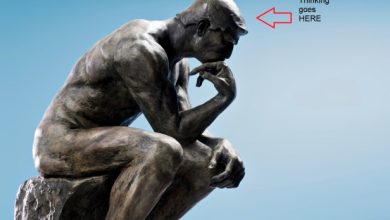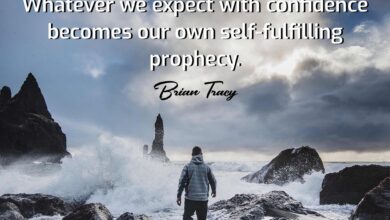We have brought American thinkers and gurus.

I don’t like walking blind in a challenge.
To give me the greatest chance of success in transforming the leadership of a particular organization, I like to learn about the configuration of the land, the personalities involved, and the challenges the company faces. That was certainly part of my preparation last fall when I engaged with a global travel management company to speak with its top leaders about leadership responsibility.
To gather advanced information, I had a few meetings and calls prior to my session with the CEO and CHRO. I asked both of them a common question: “Are there some things I should be aware of that could become an obstacle to the success of the session?”
The CHRO paused for a moment and his response surprised me. First of all, you are Canadian. Second, you clearly have a lot of global experience and that will be invaluable to our leaders.
CHRO, Travel Management Company
His answer intrigued me, so I asked him to develop it. “It’s quite simple” – he pointed out to me. Many of them are great. But what I noticed is that his vision of the world is too narrow. He went on to say, “Right now, 60% of our leaders work and live outside of the United States. So the US-based analogies and stories don’t resonate with them. We need to develop a more global mindset and we need to partner with people who can also contribute in that regard. ”
Now this story wouldn’t be so interesting if it were isolated. However, over the past eighteen months, I have had many of these conversations with my clients. The issue even came up within my own company.
Ranjit de Sousa, our new president, stopped by Toronto during a world tour. Although he has been with the company for many years, Ranjit has been in his new role for just under three months. Recently in Toronto, he spent time with clients and met with many of our local teams. He also held a meeting at the City Council with all the collaborators. During a question and answer segment, you were asked what you thought would be critical to our success.
Ranjit wasted no time thinking about her answer. “We need to develop a global mindset!”
He explained that while we are the very definition of a global company, with a presence in 65 countries, he sees an opportunity for us to provide a greater global perspective of the markets and industries where our clients conduct their business. He also wanted us all to do a better job connecting with each other in our various geographies.
Ranjit himself personifies the characteristics of a leader with a global mindset. He speaks four languages and has helped grow businesses in the United States, Europe, and the Middle East.
Since this topic of having a global mindset came up again, I decided to explore a little more on this point, and in my research, I came across a couple of great definitions that I think to capture the importance of the global mindset.
The Financial Times defines a global mindset as one that combines openness and awareness of the diversity between cultures and markets, with a propensity and ability to see common patterns in countries and markets.
the world. It is part of the personality, part of the knowledge.
Organizations of all sizes can now conduct business in multiple jurisdictions in ways that were unimaginable just a few years ago. The workforce is also more mobile, willing to move anywhere to find the best companies, leaders, and career opportunities.
But how can we leaders cultivate this global mindset? Reflecting on my own experiences and all the definitions I have discovered, I see the following qualities as critical for a leader to be truly global-minded.
Opening. Are you open to new ideas, strategies, and technologies? I don’t think it is possible to have a global mindset without the willingness to accept new and novel ideas.
Curiosity. Are you passionate about learning about cultures different from yours? Do you travel to different places, try different foods, attend local festivals and events that showcase cultures other than yours? You can’t be global if you spend all your time on the familiar.
Connect the dots. Those with a truly global mindset can connect the dots and see common patterns between a number of trends and themes unfolding in the world. These are people who can see and respect the differences between cultures, but also detect the ways in which we are the same.
Adaptability. The ability to change and adopt different strategies is a trait that I have heard from many world leaders that I have worked with. You may think that your proven approach will work in a different country or culture, but it may not. You will most likely have to adapt and modify your approach so that you can connect and work with colleagues and clients.
Modesty. I found that being a genuine, honest, and humble person leads you to build relationships based on trust, which is essential for a global mindset. And although each country is different, humility is a universal value in almost every place I have visited and worked.
As you review these five ideas, how do you evaluate your own leadership? Are you the type of leader who can develop a truly global mindset? Or are you stuck in a place where you don’t know anything about the world in general and, more worryingly, you don’t want to know?




